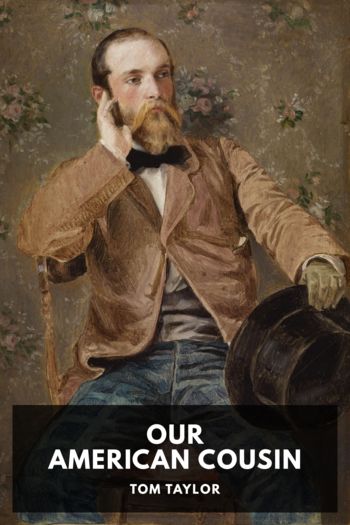Daughters of the Summer Storm by Frances Statham (best sci fi novels of all time .TXT) 📗

- Author: Frances Statham
Book online «Daughters of the Summer Storm by Frances Statham (best sci fi novels of all time .TXT) 📗». Author Frances Statham
"Marigold." He hurried up the steps toward her. "I have some good news. Where is your father?"
"In the library, I think."
Arthur went into the house and Marigold followed. "John has been allowed to take his seat in the Senate, Robert," the man said as soon as he saw his friend.
"Thank God," Robert Tabor replied and clasped Arthur's hand.
Henry Clay and John Calhoun began their work on a new tariff bill. The nullification act was scheduled to go into effect on February the first. If a compromise could not be worked out in the one month's time left to them, then the nation would be divided against itself.
Clay introduced the new bill, calling for a gradual reduction of the excessively high duties over the next ten years, with the proviso that after that date, no article would be subject to more than 20 percent of duty leveled on it. It passed.
In March, Robert Tabor went back to Columbia. The convention reassembled and canceled its nullification ordinance. The crisis was over, and the federal ships left the harbor.
As soon as the bags of sand and bales of cotton were removed from the battery, Shaun Banagher came to Midgard for his wife.
"No, Shaun," Marigold greeted him. "I don't want to return with you." With the child nearly due, Marigold was uncomfortable and in a temper.
They sat in the drawing room, glaring at each other, with Shaun's face unable to conceal the anger he felt at Marigold's rebellion. "You are my wife, Marigold. I have already made arrangements. Even the nurse is at the house, waiting for you."
"Then you can tell her to stop waiting. I am not coming."
Shaun stalked out of the drawing room, and Marigold, thinking he had given in, relaxed. But then, she heard the noise upstairs—coming from her bedroom. She walked to the hall in time to see the servants carrying her trunk downstairs.
"Where are you taking that?" she demanded.
"Outside, to the carnage," Shaun answered, standing at the head of the stairs, with her green cape draped over his arm. "Everything is packed, except your cape. I presume you will wish to wear it."
He walked down the stairs and held the cape for her. "Shaun," she protested.
"If you do not come willingly," he whispered fiercely in her ear, "I shall be forced to pick you up in front of the servants and carry you out. And I am not sure, because of your size, whether I will be able to get you safely down the steps."
Her topaz eyes flashed fury at his remark. "Don't tax your strength, Mr. Banagher." She grabbed the cape from him and hurried toward the front door.
Shaun quickly caught up with her and, disguising the amused gleam in his eyes, he took Marigold's arm to help her to the carriage.
"Maman is not even at home," Marigold pouted. ''She will wonder what has happened to me."
"I told your father I was coming for you today."
"And he had no objections?"
"It is not up to a father to object when a husband decides to take his wife home."
In surprise, Marigold looked at Shaun. He was behaving exactly like her father—having his own way, brooking no opposition. Why had she not noticed that before?
When Marigold returned to the house on the battery, Shaun paid no more attention to her than he had when she was at Midgard. But he had provided well for her comfort. She had only to ring the little bell at her chair to bring one of the new servants to see to her every whim.
For much of the time, Shaun was away, coming home late in the evenings, sometimes after Marigold was already in bed. But toward the middle of the month, he stopped going out altogether.
Though it was mid-morning, Shaun still sat in the upstairs parlor and continued to read the paper. "Don't you need to attend to your business affairs today, Shaun?" Marigold asked.
Glancing over the top of the paper, he replied, "No, Marigold. I have arranged to be away from my office this week. Anything of importance will be brought to the house.
"Why?"
He placed the newspaper on the table by his chair. "Isn't it obvious? You look as if you can't go another day without having the baby."
There it was again—his reference to her size. Feeling clumsy and uncomfortable, Marigold lashed out, "For your information, Shaun, this is the way all women look at this time."
His glance softened. "I know, Souci." His conversation was interrupted by the heavy knock at the front door. Soon he left her, going downstairs to his library to be closeted for the rest of the morning with a man from his office.
The next day Marigold awoke to a fleeting backache, and before afternoon arrived, the nurse and doctor were hovering over her. Shaun did not come near her. Surrounded by strangers to have the child of a man she hated, Marigold had never felt more alone in her life. . . until, finally, she heard her mother's voice.
She had an easy delivery, especially for the first one. By the time Shaun came to see her in the evening, Marigold was sitting up in bed, attacking the food that she had not been allowed to eat during the day.
Shaun stared at her large tawny eyes, the golden hair falling in ringlets onto the pillow—and her full breasts outlined by the thin silk gown.
"Having a child seems to agree with you, Marigold," his impudent voice teased. "I must remember it for future years."
"Have you seen her?" Marigold asked, laying down her soup spoon.
"Yes. I can't say she looks much like you."
Marigold lowered her eyes, and her fingers brushed against the spoon. Shaun was right. The baby's hair was coal black—like Crane's. But it was also like Maranta's.
"Have you heard about Maranta?" Marigold asked, still uneasy at Shaun's presence. "She had a baby, too."
Shaun nodded.
"Maman only got the letter yesterday," Marigold





Comments (0)